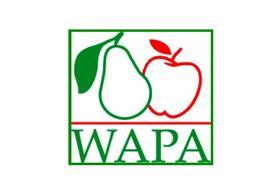
Click here to download WAPA's Southern Hemisphere forecast and market assessment
The World Apple and Pear Association (WAPA) has released its annual consolidated crop forecasts for the forthcoming Southern Hemisphere apple and pear seasons, revealing a small anticipated increase in apple volumes and a major downturn in the expected availability of pear production.
Collected from industry groups in Argentina, Australia, Brazil, Chile, New Zealand and South Africa, the statistics showed that the 2010 apple and pear Southern Hemisphere crops are expected to reach 5.17m tonnes and 1.4m tonnes respectively.
For apples, this represents a increase of just 1 per cent on the 2009 figure, and forecast export figures are set to follow a similar trend, increasing to 1.32m tonnes.
For pears, meanwhile, a significant decrease of 12 per cent on last year's crop is likely to be recorded, with export figures forecast at around 9 per cent lower than in 2009 at 702,000 tonnes.
WAPA also presented the latest data regarding Northern Hemisphere apple and pear stocks, which it said stood at 3.65m tonnes and 658,000 tonnes respectively as of 1 January 2010.
Those figures represent an annual increase of 5 per cent for apples and more than 50 per cent for pears.
US apple stocks at the same point were reportedly 10 per cent down to 1.55m tonnes and 26 per cent higher at 213,000 tonnes for pears.
Appointments and aims
During last week's meeting, WAPA re-elected Alessandro Dalpiaz of Italian industry body Assomela as its president for the coming year.
Kevin Moffitt of USA Pears was also re-confirmed as vice-president of the association.
After close to 10 years of activities, the meeting offered members of WAPA, which brings together the world's key apple and pear producing and exporting countries, a chance to look back at past achievements and to outline future priorities.
Mr Dalpiaz stated: 'Members confirmed WAPA is well underway reaching its initial objectives in fostering the apple and pear industry worldwide, but more could be done especially as most of the challenges are perceived to be at a global level.'
He continued: 'The further promotion of the health benefits of apples and pears and diversification of the WAPA membership to other key producing countries – China, India, Turkey – have been identified as key priorities.'
Participants were also informed about opportunities relating to the new EU framework on nutrition and health claims for the apple and pear category.
After the US, the EU is the second market to introduce such a framework and other countries are expected to adopt similar legislation.
In the short term, a variety of nutrition claims are available for apples and pears, but the association insisted that further follow-up was needed to see which generic health claims would be available.
After the meeting, Mr Moffitt commented: “WAPA has been doing a lot of efforts in compiling information on the health benefits of apples and pears. As the development of this type of legislation will be crucial on how we communicate these benefits in the future, WAPA will need to further invest time and resources in this area as well.'



